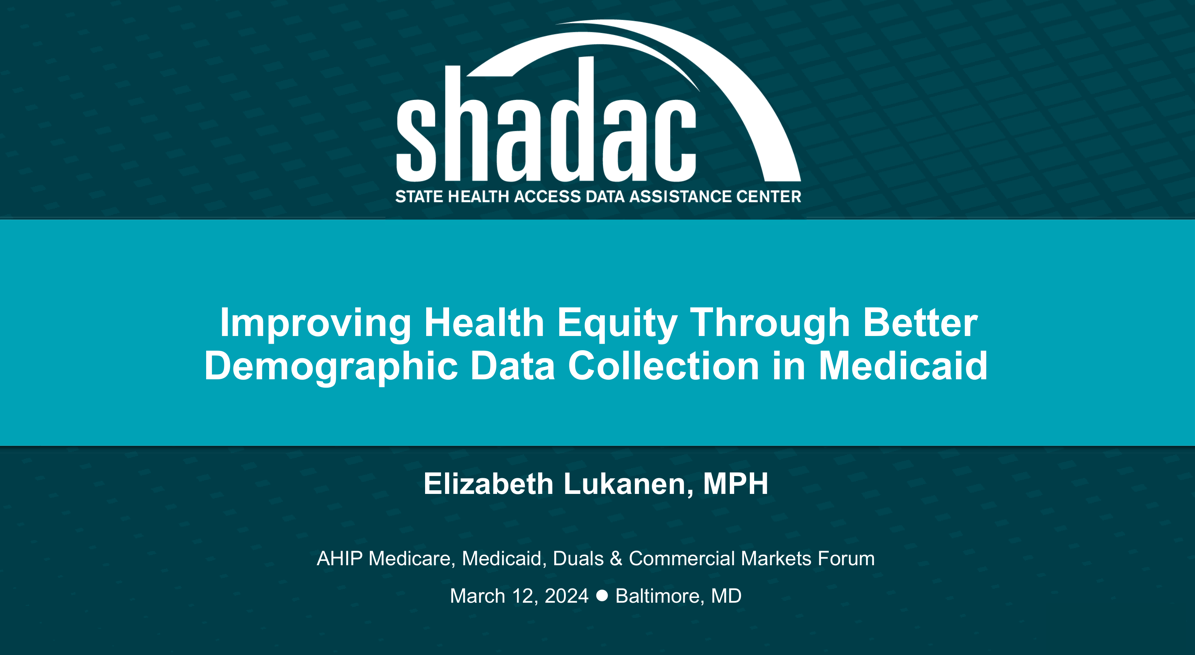Blog & News
AHIP Presentation 2024: Improving Health Equity Through Better Demographic Data Collection in Medicaid
April 01, 2024:On March 12, 2024, SHADAC Deputy Director Elizabeth Lukanen presented at the AHIP Medicare, Medicaid, Duals & Commercial Markets Forum as a part of the “Improving Health Equity Through Better Data Collection” session series. Elizabeth's presentation focused specifically on demographic data collection in Medicaid.
The conference itself focused on the pressing policy priorities, emerging issues, and regulatory updates for Medicare, Medicaid, Duals, and the commercial market. Topics ranged from panel discussions on filling the gaps in the behavioral health care workforce to presentations on advancing Medicaid Long-Term Services and Supports (LTSS) to the latest information on best practices to collect sexual orientation and gender identity (SOGI) data.
During her session series, Elizabeth shared the stage with other amazing names in public health, including Samantha Artiga, Director for Racial Equity and Health Policy Program at KFF, and Dr. Alex S. Keuroghlian, Associate Professor of Psychiatry at Harvard Medical School and Director of Education & Training at Fenway Health. The session was moderated by Dr. LaShawn McIver, Senior Vice President & Chief Health Equity Officer at AHIP.
Elizabeth’s presentation centered around how better demographic data collection in Medicaid could work towards advancing health equity. She starts by reviewing reasons why data for certain demographics may be of poor quality or missing altogether. She then goes on to discuss issues with demographic data collection for certain populations, like minority racial/ethnic groups, LGBTQ+ individuals, and those with disabilities, and how that can lead to not only data gaps, but also to overall care and access inequities.
Highlighting three states’ equity initiatives, Elizabeth explores how we might work towards improving data collection and utilizing that data to understand inequities and differences between populations served by Medicaid.
“Good data starts with trust,” Lukanen says. If we want to improve demographic data collection, “[we need to] make demographic data collection a priority.”
Make it a priority today – start by reading through the full presentation here or by clicking the image below.
You can also learn more about data collection and advancing health equity with some of the following SHADAC resources:
- Health Equity Measurement: Considerations for Selecting a Benchmark (SHVS Brief)










